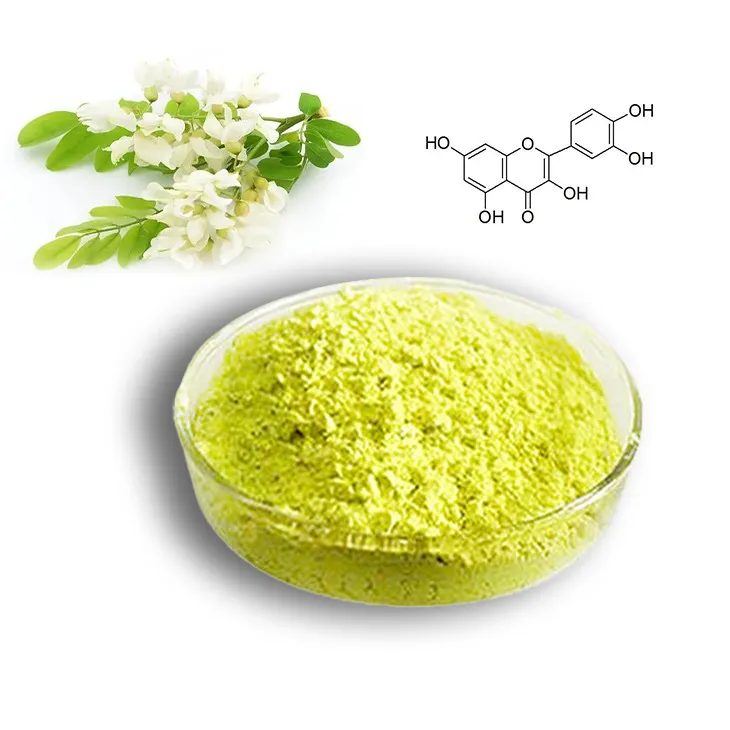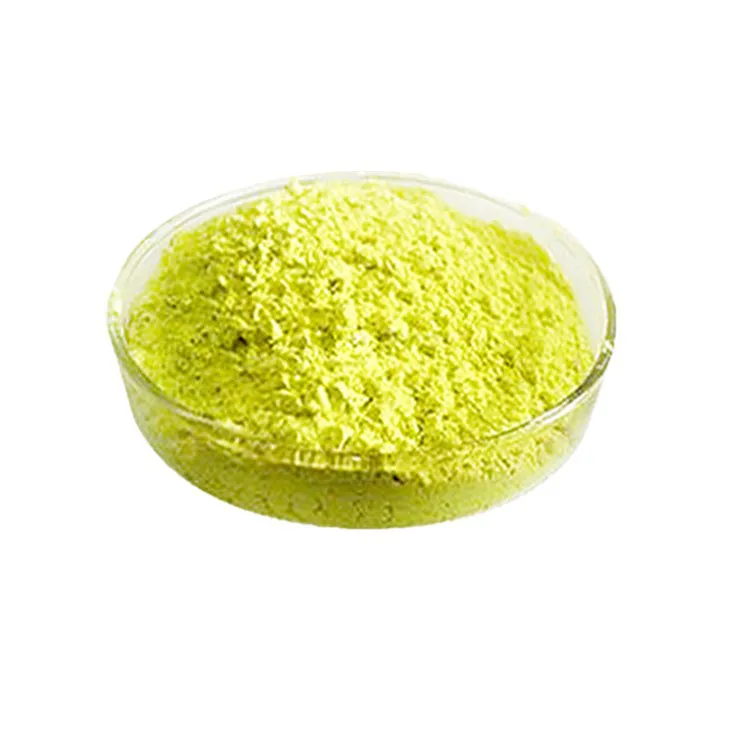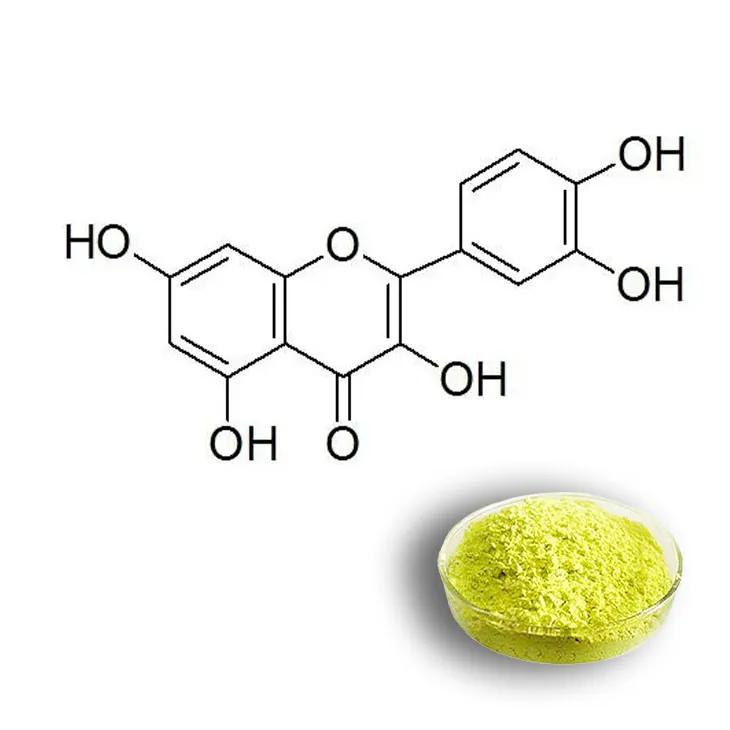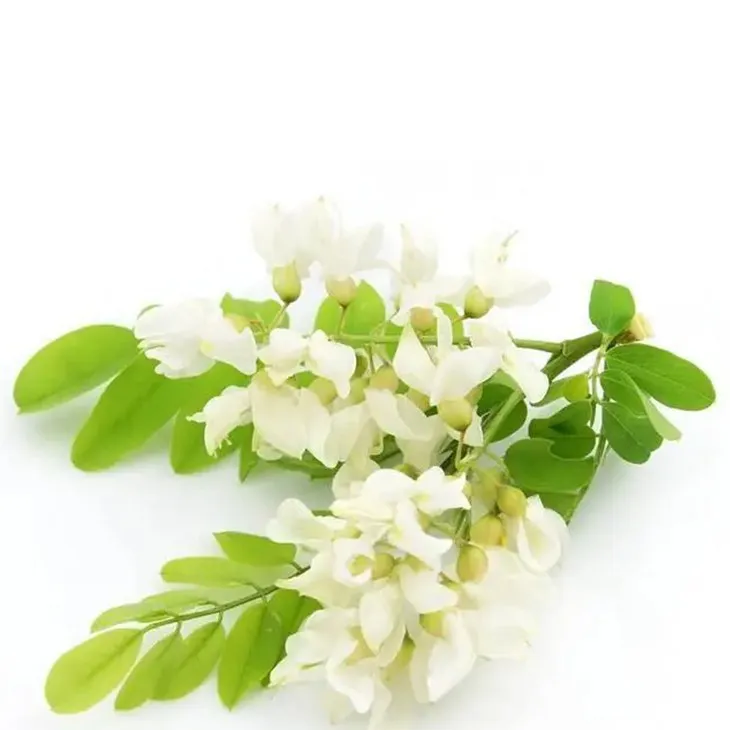- 0086-571-85302990
- sales@greenskybio.com
Four major benefits of quercetin for women of all ages.
2024-11-13

1. Introduction to Quercetin
Quercetin is a flavonoid that is widely found in nature, especially in fruits, vegetables, and grains. It has been the focus of numerous scientific studies due to its potential health - promoting properties. For women of all ages, from young adults to the elderly, Quercetin offers a variety of significant benefits.

2. Powerful Antioxidant
Antioxidant Mechanism
One of the most prominent features of quercetin is its role as a powerful antioxidant. Antioxidants are substances that can prevent or slow damage to cells caused by free radicals. Free radicals are unstable molecules that are produced during normal body metabolism, as well as in response to environmental factors such as pollution, radiation, and smoking. Quercetin has the ability to donate electrons to these free radicals, thereby neutralizing them and preventing them from causing oxidative stress on cells.
Cell Protection and Anti - aging
Oxidative stress can lead to various forms of cellular damage, including damage to DNA, proteins, and lipids. In women, this can be particularly concerning as it can accelerate the aging process. Quercetin helps protect cells from this damage, which in turn can have a positive impact on maintaining a youthful appearance and overall health. For example, it can help prevent the breakdown of collagen, a protein that is essential for skin elasticity. By reducing oxidative damage to cells, quercetin may contribute to slower aging of the skin, reducing the appearance of wrinkles and fine lines.

3. Maintaining Hormonal Stability
Hormonal Fluctuations in Women
Women experience hormonal fluctuations throughout their lives. From the menstrual cycle in younger years to menopause in later life, these hormonal changes can bring about a variety of physical and emotional symptoms. For instance, during the menstrual cycle, estrogen and progesterone levels change, which can lead to mood swings, bloating, and breast tenderness. During menopause, the decline in estrogen levels can cause hot flashes, night sweats, and vaginal dryness.
Quercetin's Role in Hormonal Balance
Quercetin has been shown to have a beneficial effect on hormonal stability. It can interact with estrogen receptors in the body, modulating the activity of estrogen. This interaction may help to regulate hormonal levels during the menstrual cycle, potentially reducing some of the associated symptoms. In the case of menopause, quercetin may also play a role in alleviating the symptoms related to hormonal decline. Although it cannot replace hormonal replacement therapy, it can be a complementary approach to support women's hormonal health.

4. Benefits for the Skin
Improving Complexion
Quercetin offers several advantages for the skin. Firstly, it can improve complexion. By reducing oxidative stress and inflammation in the skin, it can help to even out skin tone. This means that skin discolorations, such as dark spots and hyperpigmentation, may be reduced. The antioxidant properties of quercetin also protect the skin from environmental damage, such as damage from UV radiation. This protection can prevent the formation of new dark spots and keep the skin looking bright and healthy.
Enhancing Skin Elasticity
As mentioned earlier, quercetin helps protect collagen in the skin. Collagen is the main structural protein in the skin, providing support and elasticity. As women age, collagen production decreases, leading to sagging skin. Quercetin can slow down the degradation of collagen and may even stimulate its production to some extent. This can result in enhanced skin elasticity, giving the skin a more firm and youthful appearance.

5. Anti - Inflammatory Properties
Inflammation in Women's Health
Inflammation is a natural response of the body to injury or infection. However, chronic inflammation can be a contributing factor to many health problems. In women, chronic inflammation may be associated with conditions such as endometriosis, polycystic ovary syndrome (PCOS), and autoimmune diseases. Endometriosis, for example, is a condition where the tissue that normally lines the uterus grows outside of it, causing pain and inflammation.
Quercetin's Anti - inflammatory Action
Quercetin has strong anti - inflammatory properties. It can inhibit the production of inflammatory mediators in the body, such as cytokines and prostaglandins. By reducing inflammation, quercetin can be a great help in alleviating some of the symptoms associated with these common health issues in women. For example, in women with PCOS, quercetin may help reduce inflammation in the ovaries, which could potentially improve hormonal balance and ovulation function.
6. Conclusion
In conclusion, quercetin offers four major benefits for women of all ages. Its role as a powerful antioxidant protects cells from damage and aging. It can assist in maintaining hormonal stability, which is crucial for women's overall well - being throughout different life stages. The positive effects on the skin, including improving complexion and elasticity, are also significant advantages. Moreover, its anti - inflammatory nature can be very helpful in alleviating some common health issues that women may face. Incorporating foods rich in quercetin into the diet, such as apples, onions, and berries, or considering quercetin supplements under the guidance of a healthcare professional, can be a great way for women to take advantage of these health - promoting properties.
FAQ:
What is quercetin?
Quercetin is a flavonoid, a type of natural compound found in many plants. It is known for its antioxidant, anti - inflammatory, and other beneficial properties.
How does quercetin protect cells from damage?
As an antioxidant, quercetin can neutralize free radicals in the body. Free radicals are unstable molecules that can cause oxidative stress and damage to cells. By donating electrons to these free radicals, quercetin helps prevent them from reacting with and harming cells, thus protecting cells from damage and aging.
Can quercetin really help with hormonal stability in women?
Yes, it can. Quercetin may interact with the body's hormonal systems in ways that help maintain balance. It can influence estrogen metabolism and receptor activity, which is important for hormonal stability in women. However, more research is still needed to fully understand the mechanisms.
How does quercetin improve skin complexion?
Quercetin's antioxidant and anti - inflammatory properties play a role in skin health. By reducing oxidative stress and inflammation in the skin, it can help to even out skin tone, reduce redness, and give the skin a healthier appearance, thus improving complexion. It may also stimulate collagen production, which is related to skin elasticity.
What common health issues can quercetin alleviate?
Due to its anti - inflammatory nature, quercetin may be helpful in alleviating conditions such as menstrual cramps in women, which are often associated with inflammation. It may also have potential benefits for other inflammatory - related issues like joint pain or some digestive problems, although again, more research is required to confirm these effects.
Related literature
- Quercetin: A Promising Flavonoid for Women's Health"
- "The Role of Quercetin in Cell Protection and its Relevance to Women"
- "Quercetin and Hormonal Balance in the Female Body"
- ▶ Hesperidin
- ▶ Citrus Bioflavonoids
- ▶ Plant Extract
- ▶ lycopene
- ▶ Diosmin
- ▶ Grape seed extract
- ▶ Sea buckthorn Juice Powder
- ▶ Fruit Juice Powder
- ▶ Hops Extract
- ▶ Artichoke Extract
- ▶ Mushroom extract
- ▶ Astaxanthin
- ▶ Green Tea Extract
- ▶ Curcumin
- ▶ Horse Chestnut Extract
- ▶ Other Product
- ▶ Boswellia Serrata Extract
- ▶ Resveratrol
- ▶ Marigold Extract
- ▶ Grape Leaf Extract
- ▶ New Product
- ▶ Aminolevulinic acid
- ▶ Cranberry Extract
- ▶ Red Yeast Rice
- ▶ Red Wine Extract
-
Mulberry Extract
2024-11-13
-
Maca Extract
2024-11-13
-
Beetroot juice Powder
2024-11-13
-
Feverfew Extract
2024-11-13
-
Sophora Flavescens Root Extract
2024-11-13
-
Coix Seed Extract
2024-11-13
-
Hawthorn powder
2024-11-13
-
Tinospora cordifolia extract
2024-11-13
-
Mango flavored powder
2024-11-13
-
Curcuma Longa Extract
2024-11-13





















